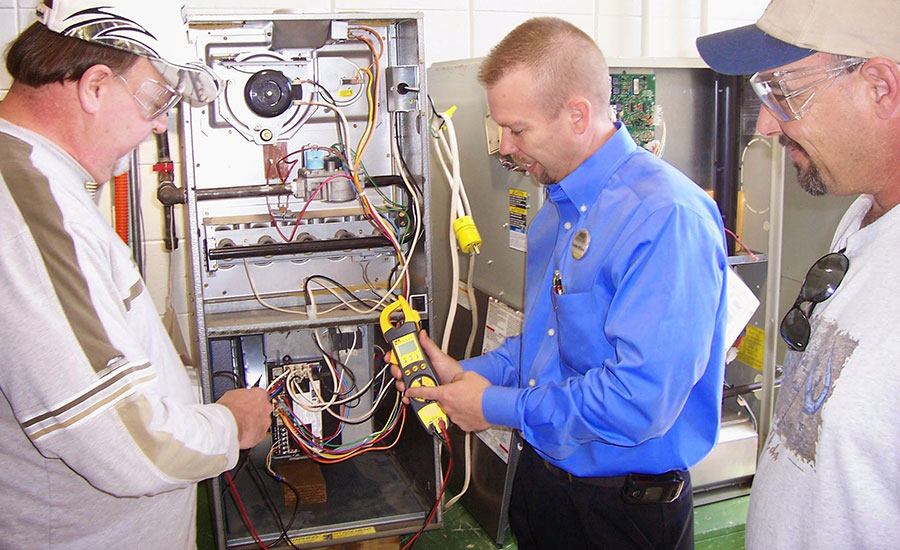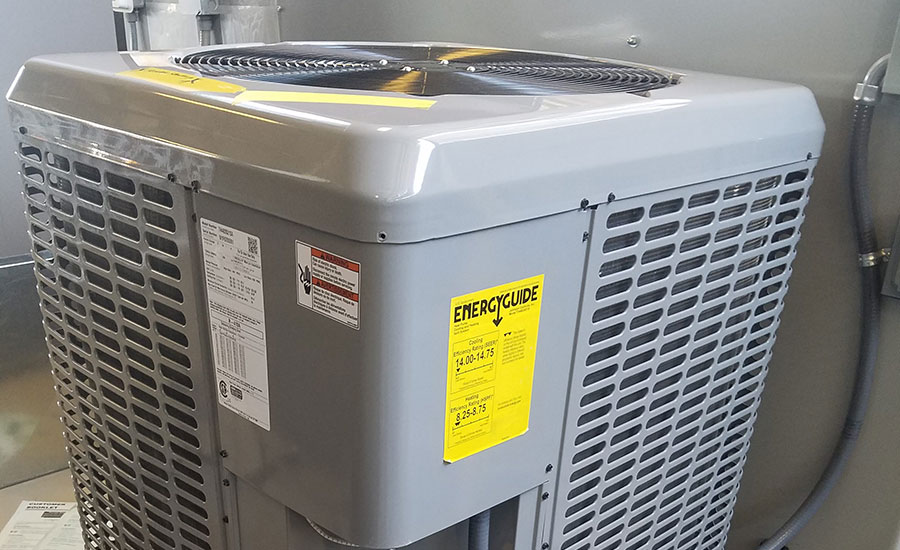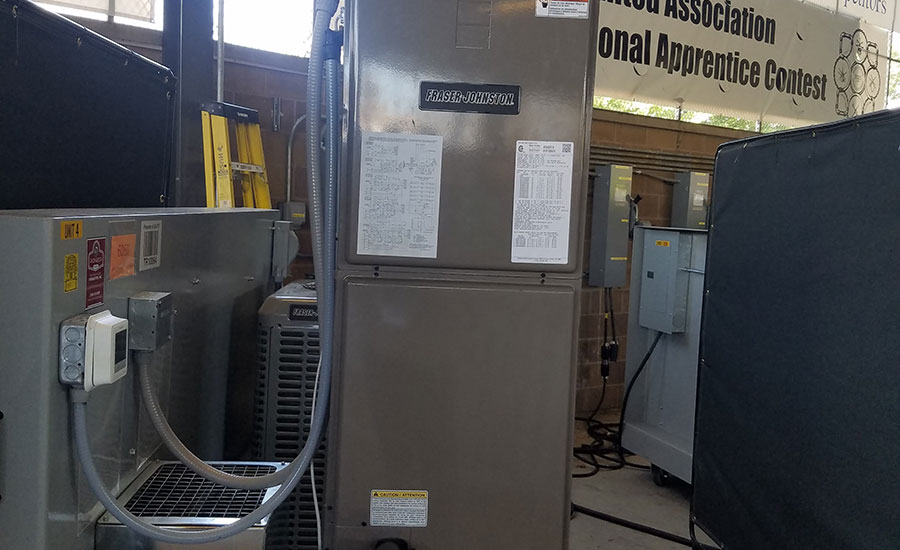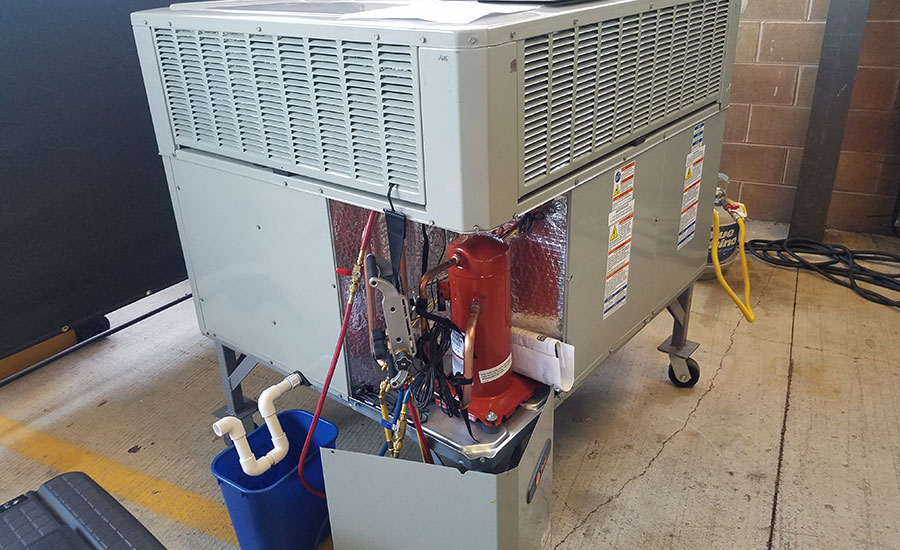For Jose Vital, the chair of Harper College’s HVACR program in Palatine, Illinois, the coronavirus pandemic illustrates two absolutes in the HVACR field: It’s essential, and it’s ever-changing.
Coronavirus vaccines requiring ultra-low temperature freezers are just the latest example, he says.
“No matter what, no one can do without heating and cooling year-round,” Vital explains.

Vital and Harper College are completing the self-study phase of pursuing accreditation from HVAC Excellence, a third-party programmatic accreditation organization that evaluates HVACR programs so that future technicians walk away from their training prepared to work with the latest technology.
When HVAC Excellence was founded in 1994, that was far from the case, says Howard Weiss, executive vice president of Mt. Prospect, Illinois-based ESCO Group, which manages the accrediting organization.
A lack of consistency existed from school to school and curriculum to curriculum at the time, leading to a lack of outcomes — “and a big push for third-party validation,” he says.
The Tennessee Board of Regents had found there was no national accreditation group for the HVACR industry and contacted HVAC Excellence, which launched its programmatic accreditation in 1999.
“Instructors really needed a blueprint: a map of the skill sets that people needed,” Weiss says.
Of 1,300 HVACR programs in the U.S., HVAC Excellence now deals with more than 1,000, says Weiss.
The accreditation program evaluates a program’s mission; administrational responsibilities; finances; student services; instruction design and program elements; facilities; equipment and tools; cooperative training and instructor qualifications.
Following the submission of an application and a self-study to HVAC Excellence, they are reviewed in a process that takes an average of 15-20 days and a maximum of 45.
If an HVACR program’s self-study and documents are approved, an onsite evaluation is scheduled. The accreditation review board assesses the report from the onsite visit and makes a final determination, a process the organization said takes an average of 30 days and a maximum of 45 days.




Setting ‘The Gold Standard’ In HVACR
Modern HVACR equipment — from mini-splits to HFO refrigerants — make continuing education a necessity, says Eugene Silberstein, director of technical education and standards at HVAC Excellence. It’s an industry in which more than 90 percent of people have no formal training, he says.
“We set the gold standard for how we make certain students learn what they need to learn. Part of that is ensuring the teachers standing in front of the room are knowledgeable in the area.”
The HVAC Excellence accreditation process includes a one-day visit from a two-person team from outside the school or training program’s state: the first with years of experience in administration and the second with experience as the chair of an HVAC program. One problem that HVAC Excellence’s process often uncovers is what Silberstein, who has over 35 years of HVACR experience in both the field and classroom, terms a content versus delivery problem.“If a teacher does well on topic A, but students do poorly, we need to teach the teacher how to teach topic A.”
Some HVAC Excellence exams vary based on, for example, the type of heating prevalent in the school or training program’s geographic area. That’s reflective of the reality of the HVACR field, Silberstein said, and one that sets it apart from other professions that are taught identically in every state.
“In Alaska, you’re not learning too much about cooling. You’re going to be learning a lot about heating,” he says.
“Depending on where you are in the country, an HVAC program is going to look very different from every other HVAC program.”
HVAC Excellence hosts an annual conference as part of its mission to promote modern HVACR education. This year’s event is being broadcast online as a result of the coronavirus pandemic and takes place March 15-26.





Hands-On Learning At An HVAC Excellence-Accredited School
The nationwide Lincoln Technical Institute has more HVAC Excellence-credentialed instructors than any other school. The school’s Union, New Jersey and Grand Prairie, Texas campuses have HVAC Excellence accreditation for their HVACR programs.
Lincoln Tech and the Lincoln College of Technology have an initiative to accredit all of their programs, said HVAC Excellence’s Weiss. Ravon Williams, 22, of Staten Island, New York, graduated from the Union campus in April. “I’ve always felt I was a hands-on person. I always wanted to be in some form of construction,” says Williams, who aims to work in residential or commercial heating and cooling. In the school’s “green” lab, students learned how to service green energy houses and how to design some of the systems, she says.
“It helps us to get hands-on with what we'll realistically be seeing in homes once we get to the field.”
Students are learning in-person at labs limited to 15 people during the pandemic, with the remainder of the curriculum being taught online, says Paul Monck, an instructor at the school for 12 years. Many instructors at the school are certified master heating ventilation and air conditioning educators, he says — a credential from HVAC Excellence held by about 125 educators.
Students in Monck’s classroom work hands-on with subjects like ductwork fabrication, oil burners, furnaces and thermal imaging cameras. In the 1970s, Monck attended the school. Years later, he returned to take a test for EPA refrigerant certification, and this led to his move from the field to the classroom.
Naomi Holt, 26, of Plainfield, New Jersey, graduated from Lincoln Tech in December. Holt’s time at the school “was a great experience,” she says, despite the challenges presented by the pandemic, adding that instructors were patient with students during a year like no other.
“I was going through job searches one day and I saw a couple jobs that popped up in the field. They started at $20 an hour in most places,” she explains of her path to the HVACR program.
“I was like, ‘woah, I’m in the wrong field of business right now.’”


It’s About The Quality Of Training’
HVAC Excellence works with every form of HVAC training, including public and private schools and apprenticeship programs, Weiss told SNIPS. That includes unions: the organization works with the United Association of Apprentices and Journeymen, which performs training for companies like Johnson Controls and Carrier, and the Mechanical Contractors Association.
In one example, at the HVAC Excellence-accredited Washtenaw Community College program in Michigan, students are eligible for advanced placement in a UA program, Weiss says. “To me, it’s not about union or nonunion. It’s about the quality of training.”
The View From The Lab Level
At Harper College in Illinois, Vital is coordinating an HVACR program that he once attended himself. The college has three new labs, and Vital said they’re a response to changing technology. The industry is evolving rapidly due to climate change, and manufacturers are developing newer and more efficient systems, he says.
“If you don’t have programs teaching that, who’s going to be repairing those systems?” The HVAC Excellence accreditation process looks at every angle of an HVACR program, Vital says. “That’s the nice thing about HVAC Excellence: they’re not just evaluating the curriculum and they’re not just evaluating the facilities. They’re looking at the college overall.”










